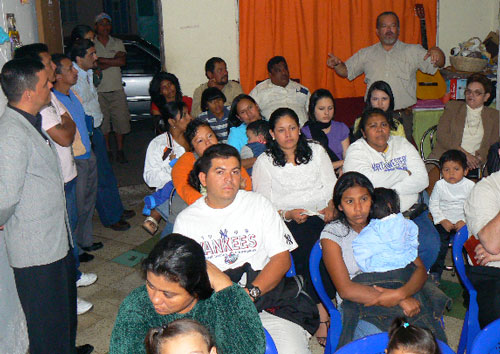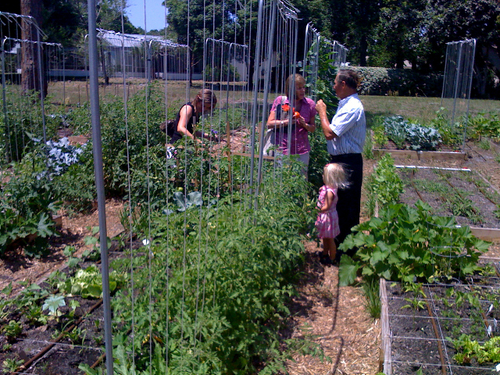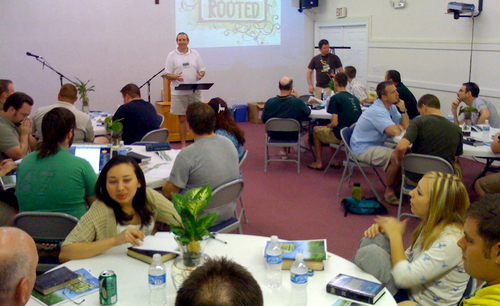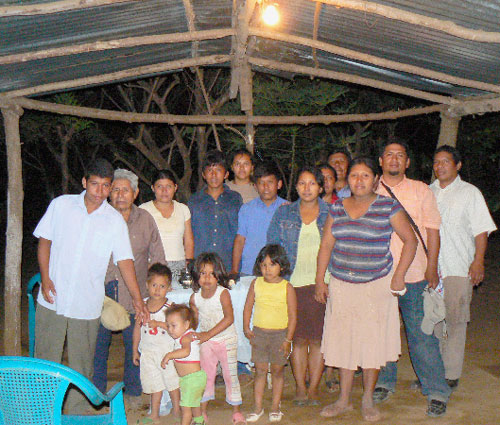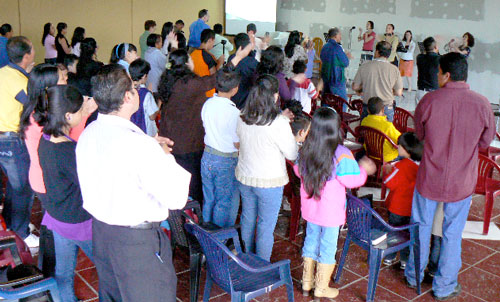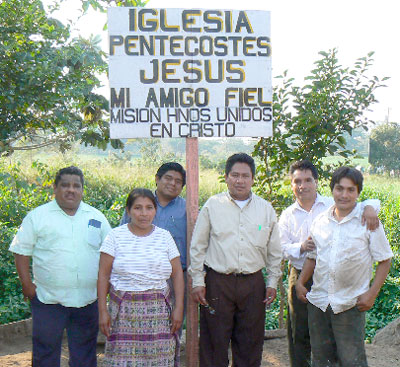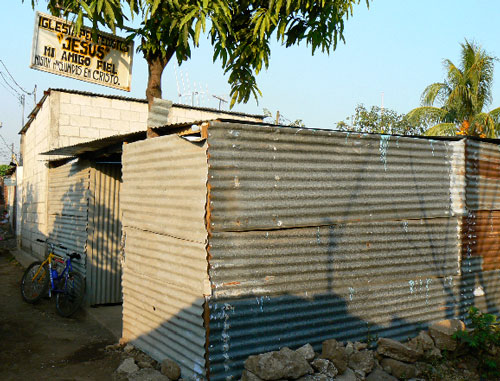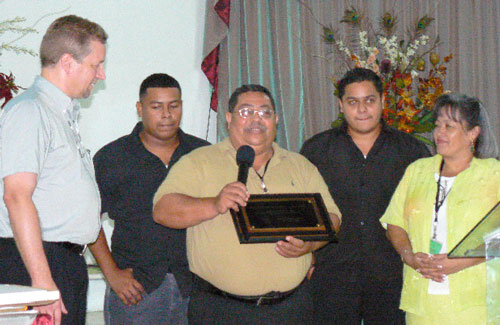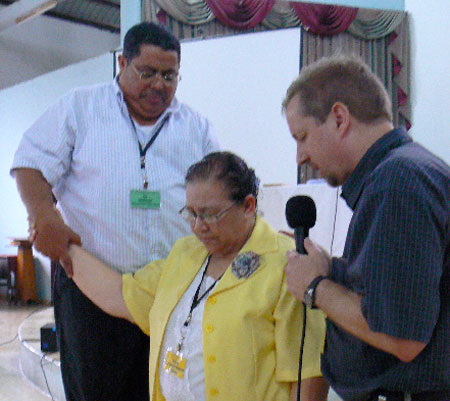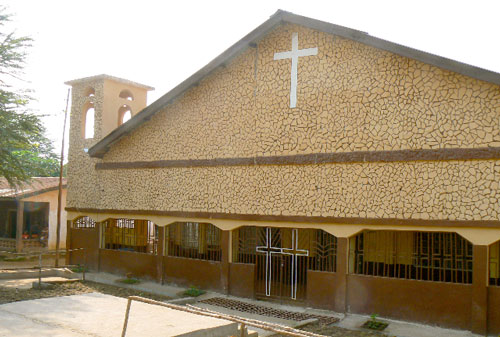25 May Costa Rica: with Pastor Eric
While I was visiting in Pastor Eric’s church in San Jose, Costa Rica, I met one fellow who came out of a drug addiction background. He first came to the church to case the joint–see what kind of sound system they had, so he could come back and steal it. Instead, he became a Christian. If he doesn’t become a pastor or preacher in some way, I’ll be surprised.
He developed a huge tumor on his neck, about the size of a soccer ball. It was intertwined with his vocal chords. The doctor said, “You can have the surgery, but you’ll probably never speak again.” The church prayed over him. He speaks a little rough, but he has a voice and he intends to use it.
At this same church, we heard a knock at the door, and a fellow entered with his wife and two young children (in pajamas). He had been influenced by the church for some time. He was a heroin addict, and wanted to be set free. We prayed with them as he confessed his sin and accepted Christ into his life.

